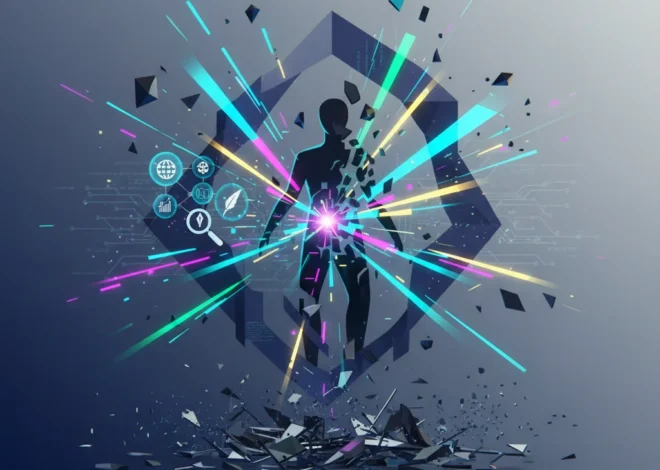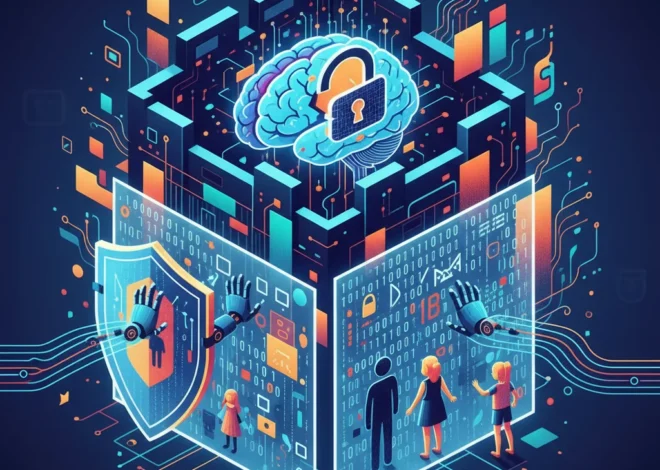
The AI Tsunami Is Here: Are You Ready to Ride theWave or Get Wiped Out?
Let’s be honest, the last couple of years have felt like a technological whirlwind. It seems like one day, artificial intelligence was a concept reserved for sci-fi movies and academic papers. The next, it’s designing our logos, writing our emails, and powering the tools we use every single day. The conversation has exploded into the mainstream, fueled by a mix of boundless excitement and a healthy dose of anxiety. This very topic was recently explored by Joe Tidy in the BBC’s “Tech Now,” prompting a crucial question that everyone—from entrepreneurs to developers to the everyday user—needs to ask: What does this AI-powered future actually look like, and how do we prepare for it?
This isn’t just about fun chatbots or image generators. We are witnessing a fundamental shift, a tidal wave of innovation that is reshaping industries from the ground up. This is the moment where we decide whether we learn to surf or risk getting swept away. So, let’s dive beyond the headlines and explore the real-world implications of this AI revolution.
More Than a Novelty: AI as the New Digital Bedrock
The first thing to understand is that AI is rapidly moving from a standalone feature to an integrated, invisible foundation. The most powerful applications of AI aren’t always the ones with the flashiest user interfaces. Instead, they are the machine learning models working tirelessly in the background, embedded deep within the software and cloud infrastructure we already rely on.
Think about the rise of Software-as-a-Service (SaaS). For years, companies have been moving their operations to the cloud. Now, AI is becoming the “special ingredient” that supercharges these platforms.
- Your CRM software isn’t just storing customer data; it’s using AI to predict which leads are most likely to convert.
- Your project management tool isn’t just tracking tasks; it’s using AI to optimize timelines and allocate resources automatically.
- Your marketing platform isn’t just sending emails; it’s using AI to personalize content for millions of users in real-time.
This integration is creating a powerful feedback loop. More data leads to smarter AI, which leads to better products, which attract more users, who generate more data. For tech professionals and businesses, the takeaway is clear: if your strategy doesn’t include AI, you’re already falling behind.
The Startup Gold Rush: Innovation and Automation Unleashed
For startups and entrepreneurs, this is a moment of unprecedented opportunity. Historically, building sophisticated technology required massive teams and eye-watering capital. Artificial intelligence, particularly when accessed via cloud APIs, dramatically lowers the barrier to entry. A small, agile team can now leverage world-class AI models to build products that can compete with established giants.
We’re seeing a Cambrian explosion of AI-native startups focused on hyper-specific problems. From automating legal document review to generating marketing copy to creating personalized learning plans for students, the possibilities are endless. The key is moving from “What can AI do?” to “What problem can I solve with AI?”
This is where automation becomes a game-changer. It’s not just about replacing manual tasks; it’s about creating entirely new capabilities. Startups can now build businesses around processes that were previously too complex or cost-prohibitive to automate. This is the engine of modern innovation, and it’s being driven by founders who can blend domain expertise with a deep understanding of what machine learning can achieve.
The Developer’s New Co-Pilot: Reshaping the Art of Programming
If you’re a developer, you might be wondering if AI is coming for your job. The reality is far more interesting. AI isn’t replacing programmers; it’s becoming their most powerful tool. The very nature of programming is evolving from writing every line of code manually to architecting systems and guiding intelligent agents.
Tools like GitHub Copilot are just the beginning. Imagine a future where:
- You describe the functionality you need in plain English, and an AI generates clean, efficient, and tested code. Your role


